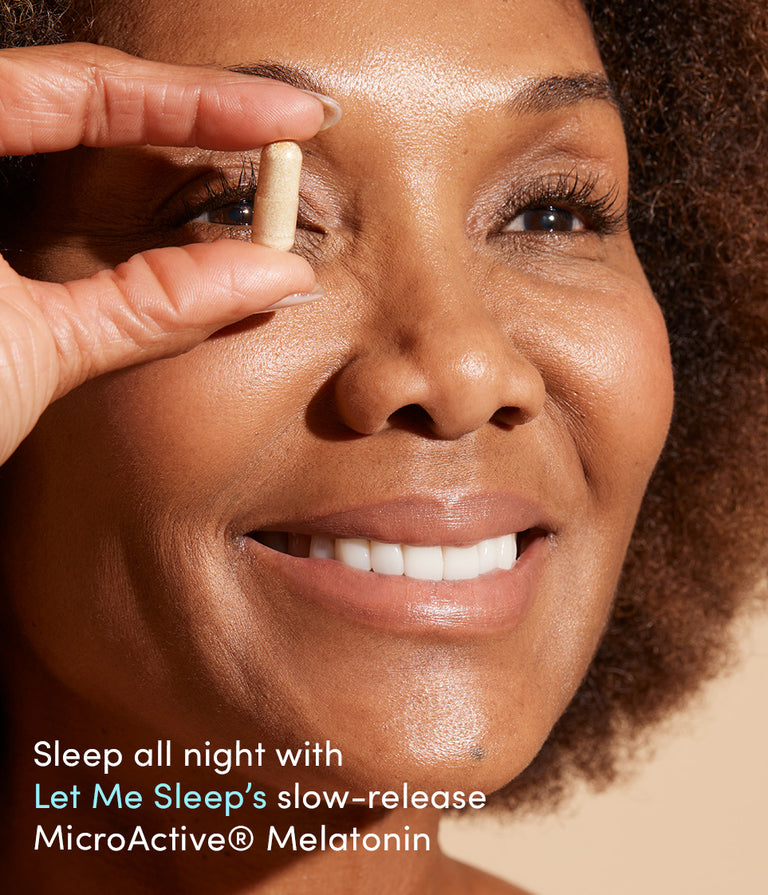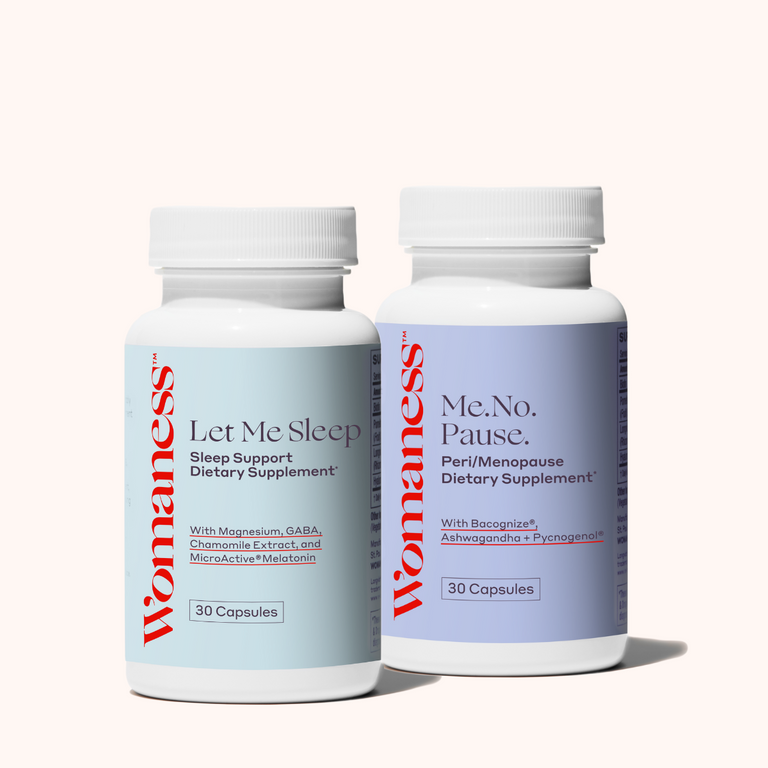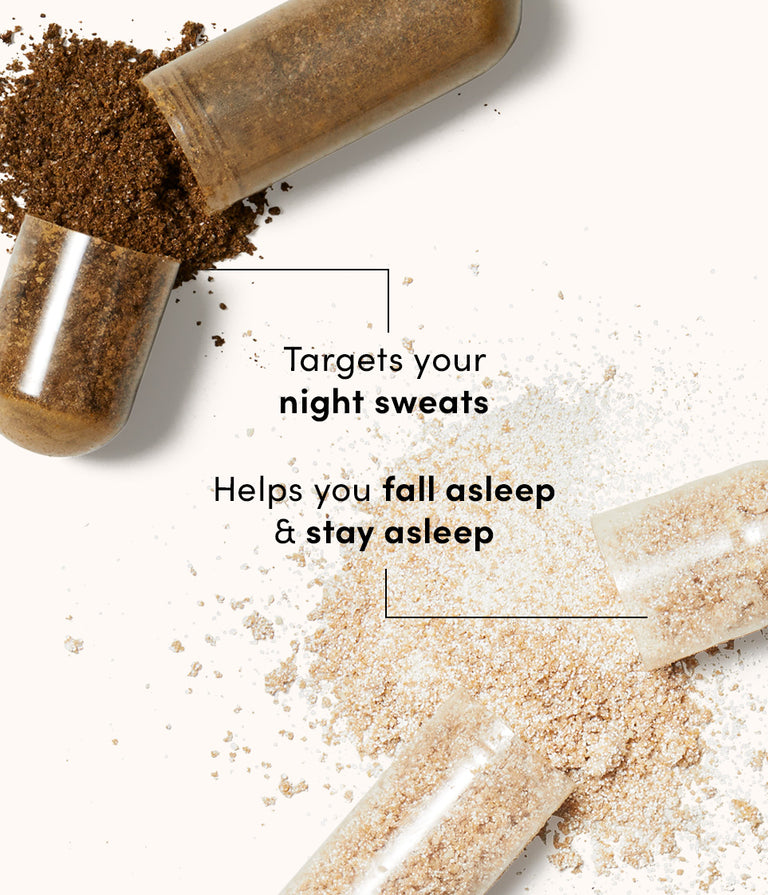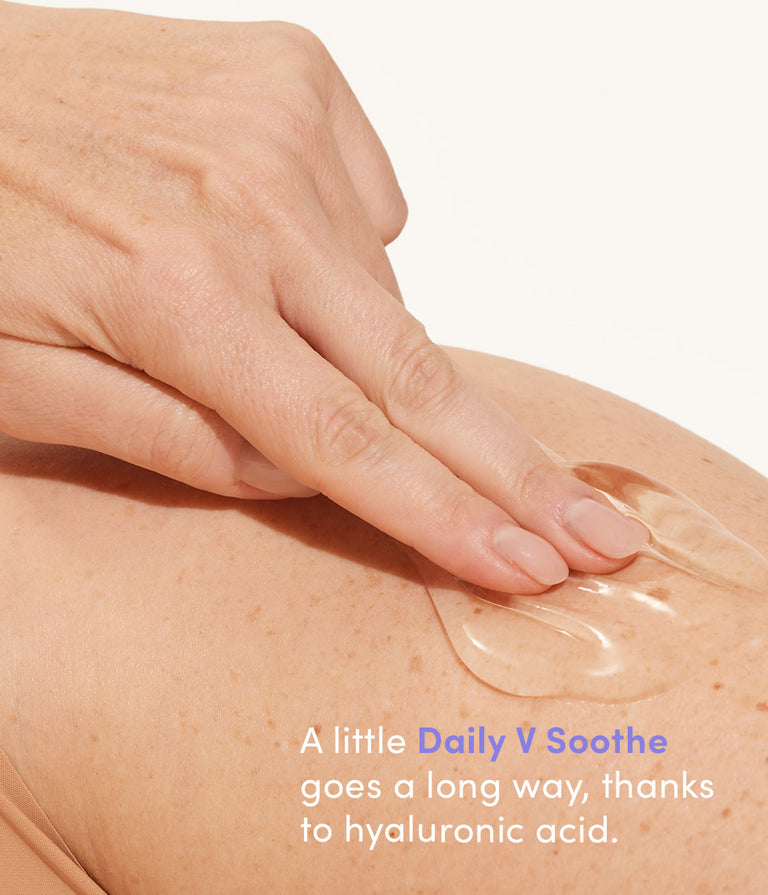By Womaness Editors 4-Minute Read
Sudden sleep troubles? Harder to recover from that HIIT class? These are the things we hear from women of a certain age, including those of us at Womaness. They come seemingly out of nowhere and can seriously affect our unstoppable life. What’s going on? In a word, menopause. Early in perimenopause, symptoms such as sleeplessness, extra weight around the middle, and muscle soreness can become a present and pesky part of everyday life. But no one expects you to take a loss of focus or lagging libido lying down. (Well, not the former anyway.) Below, we dissect some surprising menopause symptoms and most importantly, offer some relief to combat them with smart and natural solutions.
Sleeplessness: The 3 AM Wake-Up Call
You’ve given up your blue screen time and gotten to bed at a reasonable hour. So why are you waking up in the middle of the night?
What’s Going On: Changes in sleep patterns happen throughout life and sleep often becomes less restful as you age. But finding yourself wide awake in the middle of the night is one of many common signs of menopause, sometimes accompanied by night sweats.
What You Can Do: In addition to taking a natural sleep supplement to get you to sleep as well as one to curb hot flashes, you can set yourself up for a better night’s sleep by keeping the temperature on the cooler side, wearing breathable fabrics, and avoiding spicy foods or alcohol before bed.

Muscle Fatigue: The Aches That Stay
Finding the burn you get from spin class or Pilates session lingering a bit longer than it used to?
What’s Going On: While overexertion can cause muscle strain or fatigue, menopause may be the reason you’re not recovering as quickly. And it's down to hormones. Estrogen, progesterone, thyroid, and adrenal hormones are all involved in regulating cellular energy in the body, which, when compromised, can lead to fatigue.
What You Can Do: Try short bursts of exercise to ensure you don’t overdo it, cut down on stimulants like coffee or alcohol, and choose natural supplements such as vitamin B (to supply energy) and magnesium to help muscles recover faster.
Weight Gain: The Shape Shifters
You’re seeing a belly where there was never one before.
What’s Going On: Weight gain is more an age-related thing, but menopause does cause your body-fat distribution to shift, resulting in extra pounds that normally reside in your lower body to redirect to your middle.
What You Can Do: The (un)magic formula for losing weight is no different than what it is in your 20s and 30s. That means getting plenty of physical exercise and cutting calories (Mayo Clinic suggests eating about 200 fewer calories a day in your 40s and 50s than you did in your 20s and 30s). Pay attention to what’s on your plate, choosing more fruits, vegetables, and whole grains that are rich in fiber.
Disappearing Orgasms: Not In the Mood
An ebb and flow in sex drive is a natural part of life. But what if the haves are definitely trending more than the have-nots?
What’s Going On: Due to the drop in estrogen levels during the transition to menopause, vaginal dryness can put a real damper on the lidio and make sex painful or uncomfortable.
What You Can Do: To help get you back in the mood, bring some menopause symptom relief and much-needed hydration with a natural water-based vaginal moisturizer to soothe and prep for intimacy and feel free to help yourself along with some self-stimulation (aka, reach for that vibrator.)
Brain Fog: Forecast Is Hazy
Searching for that elusive word but can’t seem to find it? Or is there just a general lack of sharpness and focus on some days?
What’s Going On: While an occasional brain slip is normal, if it's happening on a regular basis, it could be tied to menopause. This is one of the most under-the-radar symptoms rarely associated with this stage of life. The fog can be caused by poor sleep, mood swings, or those bouncing hormones again. There are estrogen receptors at multiple sites of brain regions core to cognitive function: the hippocampal formation (HF), the amygdala, and the cerebral cortex.
What You Can Do: Trying a supplement with adaptogens like Bacopa monnieri that supports memory and focus can help, along with regular exercise and “brain” foods rich in omega-3 fatty acids such as olive oil and dark leafy greens to offer menopause symptom relief.
More Menopause 101
Top Menopause Myths: Dr. Ekta Kapoor
The Stages of Menopause
Perimenopause: All You Need To Know







